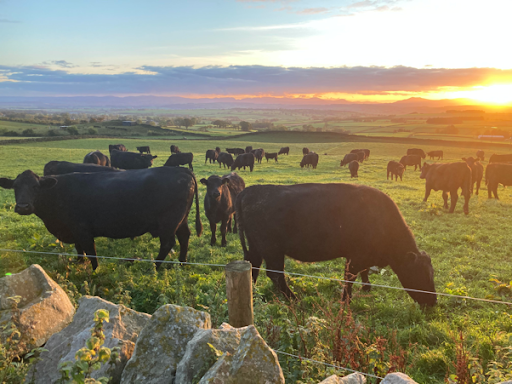What do you get when you gather a roomful of farmers together?
Farm for the Future Programme Manager Sarah Juggins reports back
What do you get when you gather a roomful of farmers together?
The answer is some lively debate, a heap of shared knowledge and some quite breathtaking ideas and visions.
Two recently-held Core Business meetings took place at venues across East Midlands and East Anglia as part of the Royal Countryside Fund ‘Farm for the Future’ programme.
In the East Midlands, the group gathered for a meeting at the Allerton Project in Leicestershire where Hannah Thorogood led a session on developing resilience in the farming business. This was followed by a farm walk, led by Joe Stanley, to look at some of the research and testing going on at the Allerton project.
The group from East Anglia met at Old Hall Farm, near Norwich, where the session was led by Charlie Curtis and Old Hall Farm owner Rebecca Mayhew.
While the two events were very different in nature, some common threads emerged.
While profit, local reputation and efficiency were recognised qualities of a successful business, both groups also picked out more social, cultural and psychological qualities. Enjoyment, enduring passion, satisfaction and strong community links were all cited in the round table debates that took place. There was also a very honest appraisal from one farmer that he might just ‘have had enough of farming’, and the group chatted about having the courage to make a decision to give up farming altogether.
‘People, planet and profit’ are the three cornerstones of running a business successfully, was the message that independent agronomist Charlie Curtis opened with as she spoke to the East Anglia group.
She pointed out that farming in the UK, as it is being presently done, is not sustainable. £7bn flows annually from farming into the economy and yet the agricultural sector is responsible for 11 per cent of greenhouse gases. As Charlie pointed out, that is a big impact for a small sector.
With many farm businesses failing to register a profit year on year, her challenge to the group was ‘How can you do things differently?’.
The same message was being uttered over in the East Midlands as Hannah Thorogood encouraged the group to consider their businesses and how they might make changes to increase efficiency.
At the heart of this ambition is the need for a strong business plan. As one participant put it: ‘It needs to be a document that signs the direction you want to travel and defines certain elements that might impede that, such as aims, challenges, barriers and risks.
‘it needs to be a flexible model to show where you spend time and effort and it should be a document that you should visit and revisit because that will keep you connected to the plan.’
A surprising amount of people on both courses didn’t have business plans; others had visions rather than plans; while yet others had things scrupulously planned out in short, medium and long term ambitions.
One cattle farmer from East Midlands impressed everyone with the way he had developed the business plan so that it also included a very clear succession route that would allow him to retire and leave his children with ‘at the very least a debt-free business’.
The most exciting and inspiring part of these sessions was to hear about the plans that people had for the future. One poultry farmer had been experimenting with different types of chicken feed, and was fast approaching a point, after many years of trial and experiment, where he had reached a recipe for locally produced ingredients that would contribute to healthy, nutrition dense chicken meat. Sitting at the next table was a farmer who was sure he could grow the necessary crops.
Another farmer had a vision that involved growing crops that would provide for all the nutritional needs for the local population. Nuts, fruits, legumes, herbs, pasture-fed livestock, dairy, herbs, root vegetables – as a panacea for too many air miles and nutritionally low food, this was a vision that really fired the imagination.
The final pragmatic words came from our two PfL regional ambassadors. Hannah Thorogood advised the group to ‘put time aside to take a regular in-depth look at your business plan and ensure all your enterprises are “washing their face”’, while Rebecca Mayhew said: ‘Most of the time our job is to make the boat go faster but sometimes we have to face the reality that we have to stop and change direction sometimes.’




